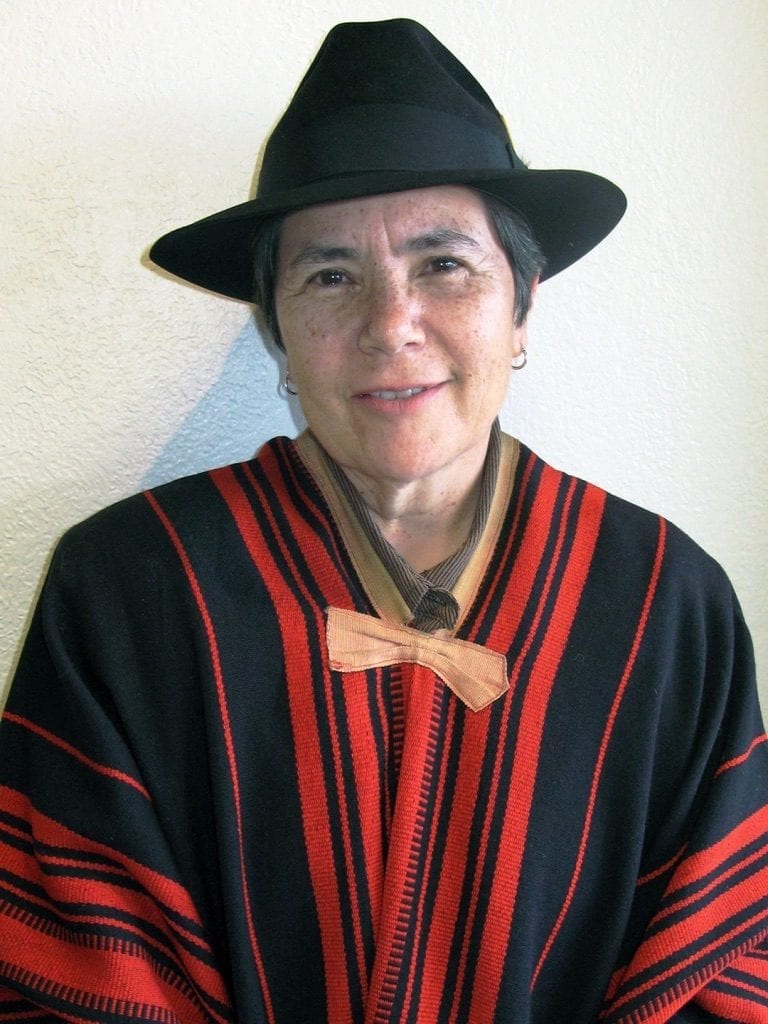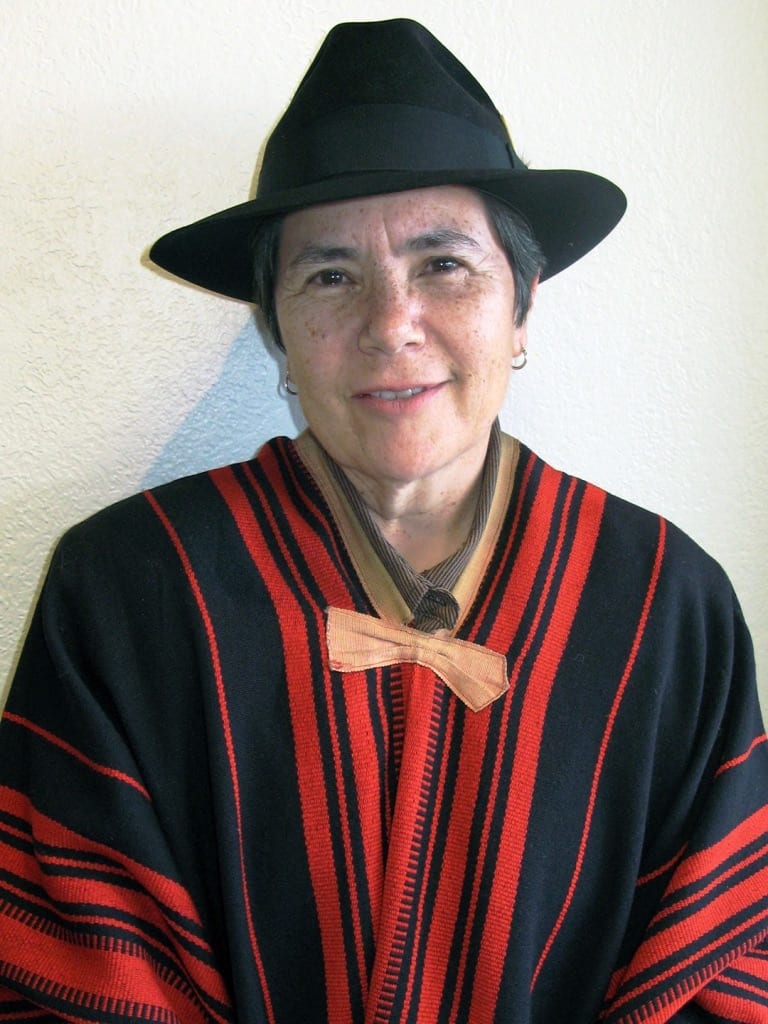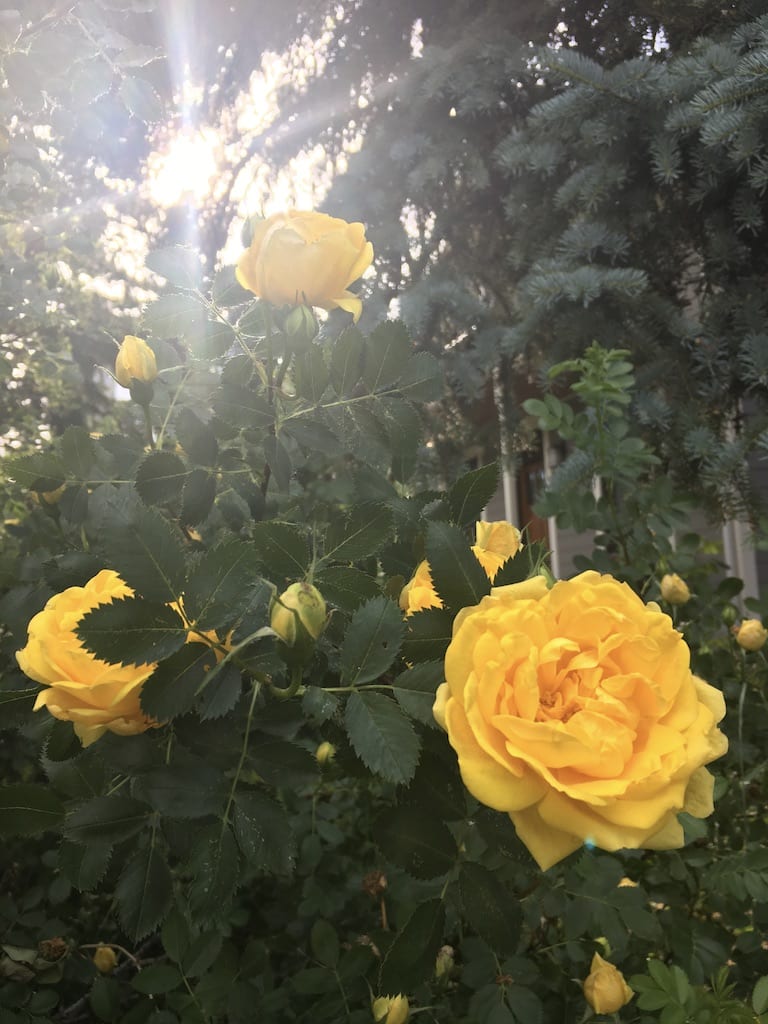The Ecology of Poetry

This is our friend, Janice Gould. She died with pancreatic cancer on June 28 of this year. She’d turned 70 on April 1. Too soon gone, and no less pure a blessing to the people and other beings who knew her. Janice lived Full Ecology. She walked the curve of this planet with attention, with kinship ever her first thought.
Janice is a celebrated poet, a scholar, a musician (flaminco guitar and accordion) and a 2nd degree blackbelt in Akido. She is a lifelong voice for the social justice that arises from the simple fact of love. Love of the world for its beings. Unearned, without conditions. The love you breathe with every breath.

Today I read the words U.S. poet laureate, Joy Harjo wrote as she thought of Janice. Here they are.
There are poets, and then there are real poets. Janice Gould was a real poet. A real poet lays it all down, gives it up, and leans into the sound worlds of words. She is willing to risk everything. The manner and stylings of the day, the meant to be impressive lyrical and theoretical gymnastics of poetics and construction that are tied to the moment, pass by unheeded. Janice Gould was absolutely herself in a poem. I believe that is the best you can say about any poet. She was vulnerable, which was one of her powers. She understood the power of lyric, and how it was utterly tied to music. She gave voice to a complicated identity, to being a Native woman in tortured lands, when to be a Native woman lands you at the bottom of a false power hierarchy. Janice was willing to risk and sacrifice, and see, to really see; her poetry became a tool for vision, compassion, and searing understanding. She leaves us her words, hands us her poems which hold the parts of her spirit she wanted to share with us, wanted us to keep for her here, until we see her again.
Mvto Janice, thank you for your friendship, for walking beside us on this poetry road.
Joy Harjo.
September 29, 2019

Janice and Mary have known each other for 25 years. As friends and colleagues. They taught graduate classes together asking the students to join them in writing poetry about the subject at hand.
CONDITIONS FOR POETRY
It should be dark – not absolutely,
but opalescent as dawn
in the hour before sunrise,
or the blue-gray of evening
as twilight gathers over the mountain.
The air should be chilly
and the only sound the small,
mechanical heartbeat of a clock
in another room.
If it is morning, coffee is called for,
oily, aromatic; if evening, a glass of red wine,
translucent, smelling of cherries.
Preferably it is Friday with rain
pattering the window,
Bachianas Brasileiras pouring
from an old radio
in a mahogany cabinet –
and we are in Berkeley or Berlin.
If Berkeley, the rain smells of the sea,
or of laurel and redwood.
If Berlin, the air is rank
with cigarettes and traffic.
Branches of linden trees shudder in the wind.
A presence stands just beyond
the closed door to your room,
attentive, listening. Or perhaps
not listening, not there,
not even thinking of you:
austere in her own life,
busy and elegent as tapestry,
fantastic as a fugue.
Janice Gould
The Force of Gratitude
This from Mimi Wheatwind, Janice’s wife:
Julie Enzer, publisher of Sinister Wisdom Press, sent me a link yesterday to an online publication that excerpted a generous portion of Janice’s introduction to the book she edited, A Generous Spirit: Selected Works by Beth Brant. The launch for Beth’s book will happen in San Francisco on November 14th at the San Francisco Public Library. Here’s a direct link to Janice’s excerpt:
https://lithub.com/how-beth-brant-uplifted-the-voices-of-native-american-queer-women/
More for remembering Janice. https://kboo.fm/media/76201-tribute-janice-gould